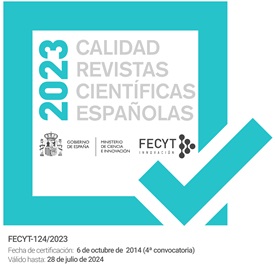El interés por la relación existente entre la corrupción y el sector privado se ha incrementado en los últimos tiempos. El presente trabajo pretende estudiar este asunto con efectos sociales desde una doble perspectiva; por una parte, conocer la realidad actual de la divulgación sobre corrupción en las empresas españolas del Ibex 35 para, posteriormente, tratar de analizar cuáles son las motivaciones subyacentes de tales prácticas y las posibles implicaciones en la gestión interna. Para alcanzar este objetivo, inicialmente realizamos un análisis exploratorio de la información relativa a la corrupción emitida por las empresas del Ibex 35 en sus memorias de sostenibilidad y, posteriormente, –basándonos en la Teoría de la Legitimidad– realizamos una entrevista en profundidad con un ejecutivo responsable de la RSC, con el objetivo de detectar las motivaciones y las implicaciones en la gestión. Las conclusiones alcanzadas son: en primer lugar, la información sobre corrupción aportada por las empresas se puede concretar en tres aspectos generales (política contra la corrupción, auditorías y sistemas de control, y los mecanismos de implementación). En segundo lugar, hemos identificado tres clusters en las empresas, destacando en este agrupamiento por su particular comportamiento, la compañía Telefónica. Por último, al analizar el caso de esta compañía, hemos observado cómo pretende mantener un nivel alto de legitimidad; para ello, intenta cumplir con las normas socialmente establecidas, y emplea la divulgación para continuar con su estatus de “empresa legítima”, e intenta generar valor y confianza. Sin embargo, los procedimientos en relación a la gestión de la corrupción parecen no haber alcanzado el nivel de concreción que en la actualidad se les exige.
Interest in the relationship between corruption and the private sector has increased in recent times. This paper aims to explore this issue with social effects from a double perspective: on one hand, knowing the reality of the disclosure of corruption in the IBEX 35 Spanish companies, and later try to analyze what are the underlying motivations for such practices and possible implications for internal management. To achieve this goal, initially conducted an exploratory analysis of information on corruption issued by the Ibex 35 companies in their sustainability reports and then –based on the Legitimacy Theory– conducted an in depth interview with a person responsible for CSR, in order to detect the motivations and implications in management. The conclusions reached are: firstly, the information on corruption provided by the companies can specify in three general aspects (anti-corruption policy, audit and control systems, and mechanisms of implementation). Secondly, we have identified three clusters in the companies, highlighting the company Telefonica because of it particular behaviour. Lastly, when analyzing the case of this company, we have seen how it intends to maintain a high level of legitimacy, for it attempts to comply with rules socially constructed, and used the disclosure to continue its status as a “legitimate business” and try to create value and confidence. However, the procedures relating to the management of corruption not seem to have reached the level of specificity that is currently required.
Agradecimientos: en especial, a los profesores Rodríguez Fernández, y Fernández Aguirre, y a los dos revisores anónimos, por sus sugerencias y aportaciones. Quisiéramos también agradecer a los participantes en la VIII Reunión de Investigación en Contabilidad Social y Medioambiental celebrada en Burgos en 2011, en especial al profesor Carrasco Fenech, así como a los participantes del XVI Congreso AECA celebrado en Granada en 2011 por sus comentarios. Esta investigación ha sido financiada por el proyecto de investigación EHU09/35 (Proyectos de Investigación UPV/EHU) y el grupo de investigación IT 555-10 (Grupo de Investigación del Gobierno Vasco).






